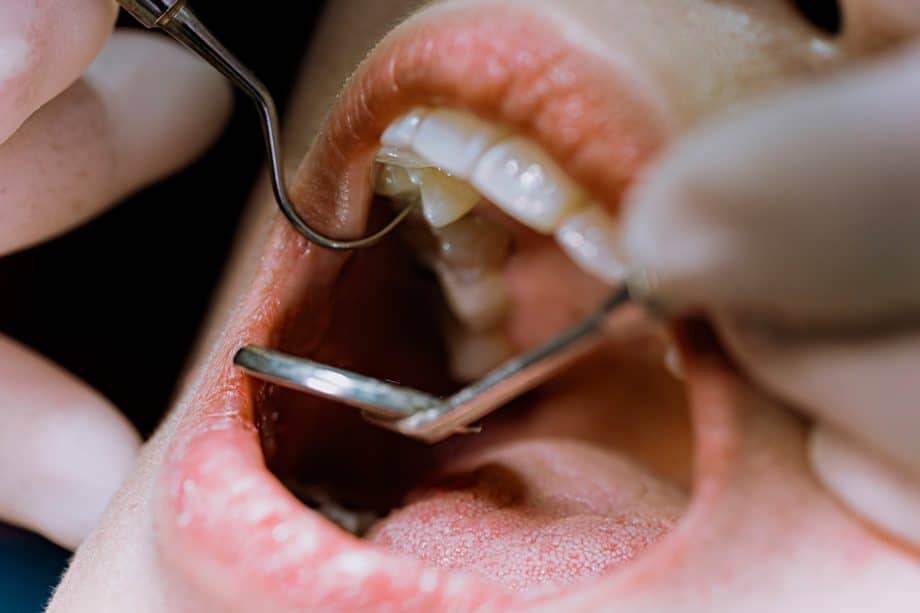Patients who experience tooth pain and sensitivity during pregnancy may worry that they need a root canal. Fortunately, the procedure is generally considered safe during pregnancy and can treat infections that could damage the patient's and baby's health.
Root Canal Safety for Pregnant Patients
Misinformation about root canals and pregnancy persists online. Pregnant patients primarily feel concern about two parts of the root canal procedure:
X-Rays
Pregnant patients should receive X-rays only in case of apparent medical necessity. The benefit for the patient and their baby outweighs the minimal risk.
Dental practitioners focus X-rays only on the head. Before receiving an X-ray, the hygienist covers the abdomen and lower body with a thick lead apron that blocks the radiation. In addition to these precautions, patients will be glad that today's digital X-rays deliver up to 60% less radiation than film X-rays used in the past.
Anesthesia
Pregnant patients can safely receive local anesthesia. Your dentist injects local anesthesia directly into the gums, where it will not harm the developing fetus.
However, patients who are pregnant should not receive sedating medications like nitrous oxide. Most patients easily tolerate a root canal without the need for sedation.
Why Root Canals Are Necessary
Decay entering the tooth's core may breach the pulp chamber inside. Due to exposure, the pulp could become inflamed, infected, or die. If you break, chip, or crack a tooth, you may also need a root canal.
To prevent the infection from spreading to other teeth and possibly becoming systemic, your dentist must remove the diseased pulp and sanitize the tooth with a root canal.
The Root Canal Procedure
A root canal is a relatively simple procedure that alleviates pain and infection. Most patients tolerate root canal treatment very well. The procedure takes about 45 minutes to an hour, though it may take longer if the roots have complex anatomy.
Step 1: Anesthesia
The dentist provides local anesthesia to keep the patient comfortable. The anesthesia does not affect the developing baby.
Step 2: Removing Pulp
The doctor drills a small opening in the tooth’s crown and removes the infected material using small tools. They may use a dental microscope to see inside the canals.
Step 3: Disinfection
The dentist thoroughly cleans and disinfects the pulp chamber and root canals. At this point, they may place an antibiotic to clear the infection and ask the patient to return in a few days to complete the procedure.
Step 4: Filling
Using a biocompatible rubber-like material, the dentist fills the tooth to seal out contamination. They use a temporary filling to close the tooth.
Step 5: Restoration
After the tooth heals, the dentist places a permanent filling or dental crown. After a root canal, a tooth with a crown lasts longer than a tooth with a filling.
Problems When Delaying Treatment
If you delay receiving a root canal, the infection inside your tooth could spread to other teeth. It could weaken the bone holding your tooth, leading to tooth loss. The pulp infection could also spread to other body parts, causing general illness and symptoms like fever and chills. A systemic infection could harm the developing baby more than the minimal risk of receiving a root canal during pregnancy.
Frequently Asked Questions About Root Canals
When is the best time to get a root canal during pregnancy?
The second trimester is ideal for most pregnant patients to receive root canal treatment. For these patients, nausea from the first trimester has often subsided. Patients may be too uncomfortable in the third trimester to sit in a dental chair. However, a dentist can perform an emergency root canal anytime during pregnancy.
What are the signs that I may need a root canal?
Symptoms include the following:
- Persistent tooth pain that worsens with pressure
- Extreme sensitivity to heat or cold that hurts after removing the food or beverage
- Swollen or darkened gums
- Pimple on gums
- Darkened tooth
Call Lindenwold Dental Center
Patients experiencing any of the symptoms above may need a root canal. If you are expecting, we can ease your mind about root canal safety. Do not delay root canal treatment during pregnancy to avoid possible complications. Please call our Lindenwold, NJ, office at 856-783-3777 with questions or to schedule an appointment.

